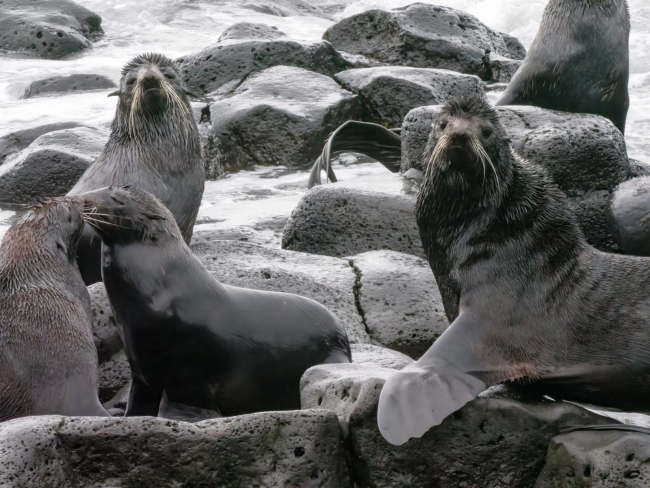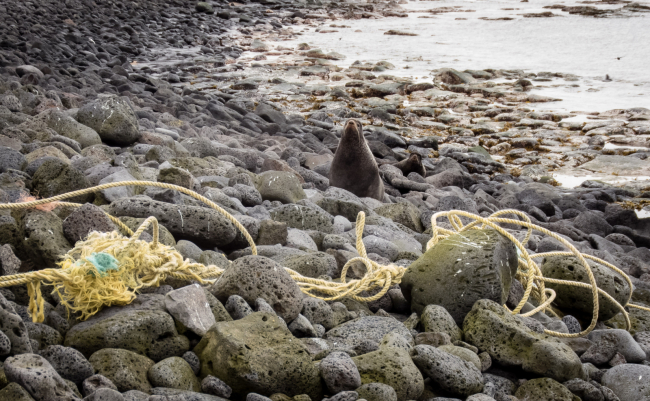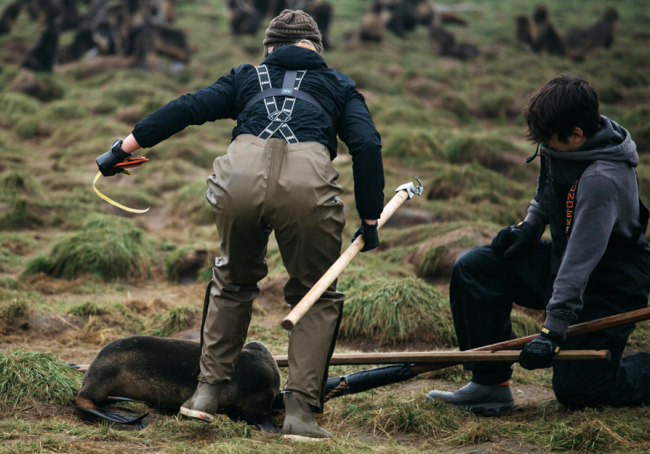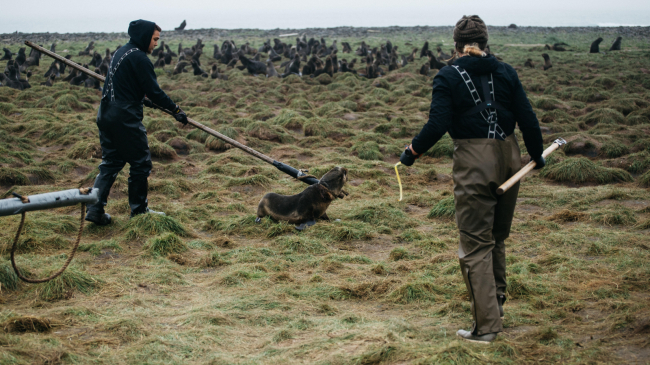Guest blog by: Lauren Divine and Veronica Padula, Aleut Community of St. Paul Island Ecosystem Conservation Office
The Aleut Community of Saint Paul Island Tribal Government has been actively tackling marine debris issues over the last two decades to protect the marine ecosystem around St. Paul Island. St. Paul Island is part of the Pribilof Islands, which are centrally situated in the eastern Bering Sea in Alaska, approximately 500 miles (805 kilometers) east of the Siberian Coast of Russia, and about 750 miles (1,207 kilometers) west of Anchorage, Alaska. St. Paul Island is about 44 square miles (114 square kilometers) in size. The waters surrounding the Pribilof Islands support globally significant populations of marine mammals and birds, and are also central to some of the most valuable commercial fisheries in the world. The St. Paul Island community comprises approximately 350-400 residents, all of whom are deeply connected to the marine ecosystem and act as critical environmental stewards for their home.
We strive to enhance engagement and outreach within our local community, the Alaska marine debris community, and the general public. Our intensive efforts focused on marine debris removal and prevention have grown our local partnerships into global partnerships, further enhancing our reach. In recent years, we have been exploring more innovative approaches to community engagement and marine debris prevention to better understand how specific types of waste impact the environment, wildlife, and the community. With the support of the NOAA Marine Debris Program, we are carrying out a community based social marketing campaign to transform attitudes and behaviors around the use and disposal of plastic packing bands on St. Paul Island, and within the commercial fishing and packaging industries. These bands are used on site by the local fishing industry to secure and ship goods to the island.
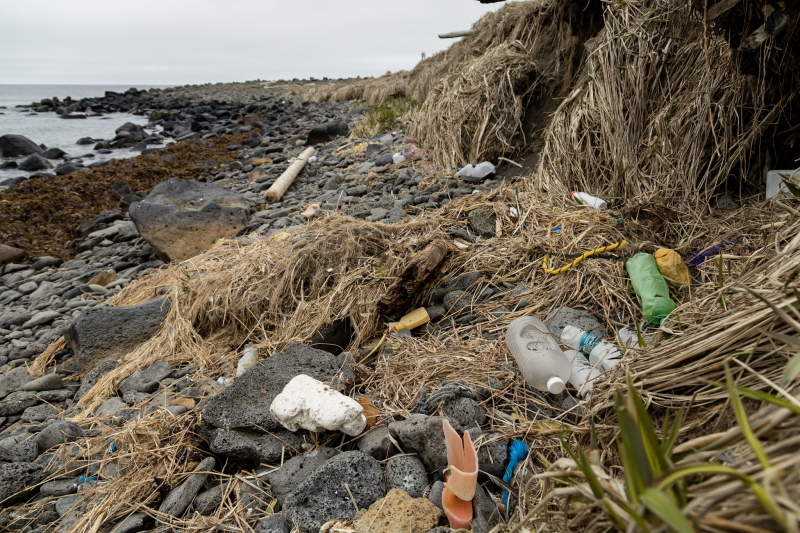
Eliminating packing band pollution is a priority because of the high risk of injury and death they pose to marine wildlife. In the summer of 2022 alone, our Aleut Community of St. Paul Ecosystem Conservation Office team disentangled over 40 laaqudan, northern fur seals, many of whom had packing bands wrapped tightly around their necks. We are committed to finding ways to prevent these painful entanglements for seals we encounter on St. Paul Island.
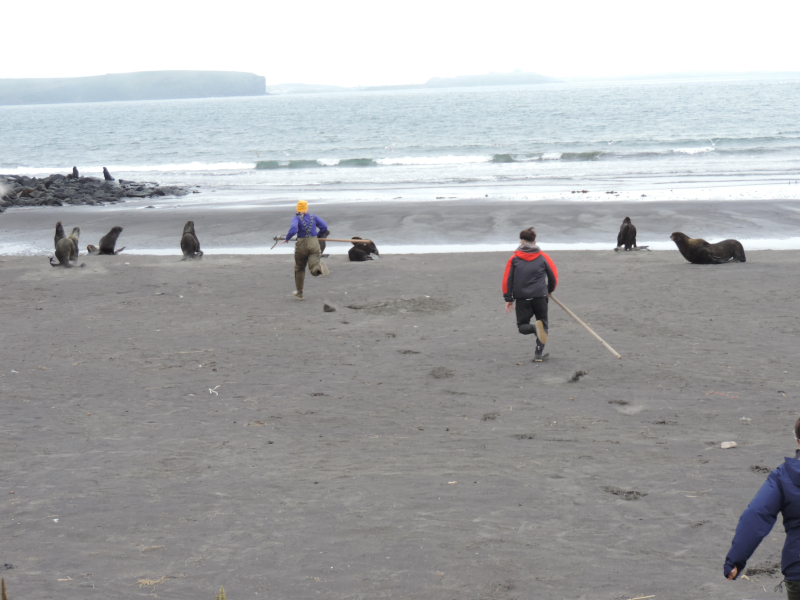
Although we clearly see the impacts, we do not know how many packing bands (whether uncut loops or entire reams of material) are lost at sea. Through this project, our team conducted a total of five community focus groups to better document and understand sources of packing bands, use and disposal of plastic packing bands, and community values around these issues. With this information we are creating outreach materials to share with various groups that are connected to plastic packing band use on St. Paul (e.g., fishing industry, cargo shipments). We hope to bring these groups together for a deliberative dialogue forum to discuss solutions. Ultimately, the desired result of our project is to reduce the threat of entanglement to laaqudan through a reduction in the number of packing bands polluting the marine environment and an increase in the percentage of bands that are cut.
As a global issue, communicating marine debris impacts is important to increasing the general understanding of the breadth and complexity of issues impacting our community. As a local issue, community engagement is critical to ensuring adequate resources and capacity are available to address marine debris issues on our shorelines.

